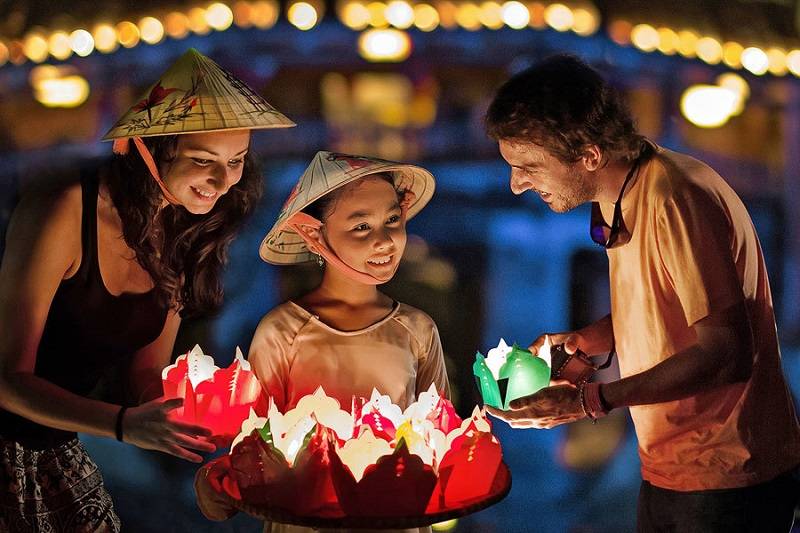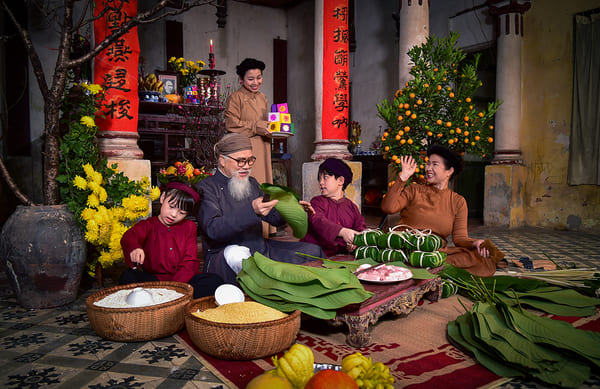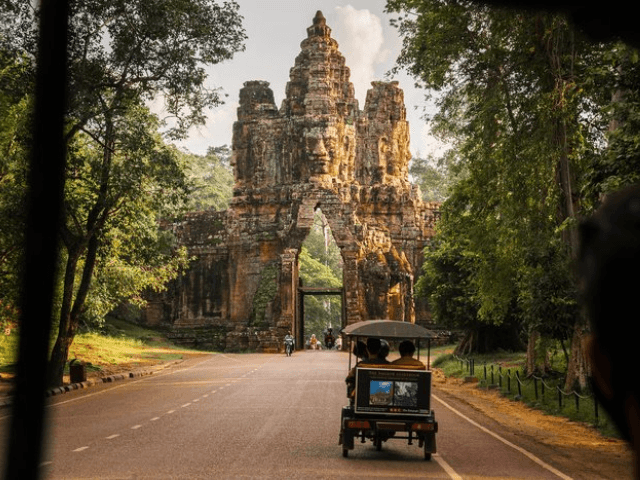Planning your Vietnam trip? Discover the most important do and don’t in Vietnam to avoid cultural faux pas, respect traditions, and enjoy a smooth, unforgettable journey.
TABLE OF CONTENTS
1
Why Cultural Etiquette Matters in Vietnam
2
Understanding Vietnamese Culture and Traditions
The Role of Respect and Harmony
Influence of Buddhism and Confucian Values
Daily Life and Social Interactions
3
Essential Do’s in Vietnam
4
Important Don’ts in Vietnam
5
Navigating Vietnamese Dining Etiquette
6
Transportation and Travel Etiquette in Vietnam
7
Business Etiquette and Professional Do’s and Don’ts
8
Festivals and Cultural Events: Dos and Don’ts for Visitors
9
Common Mistakes Tourists Make in Vietnam (and How to Avoid Them)
10
Safety and Health Do’s and Don’ts in Vietnam
11
Quick Summary Table of Do’s and Don’ts
12
FAQs About Do and Don’t in Vietnam
13
Embrace Vietnam with Respect and Openness
When traveling to Vietnam, respect for culture and traditions is key. Do learn basic Vietnamese phrases, dress modestly at temples, bargain politely at markets, and try authentic street food. Show respect to elders, use both hands when giving or receiving items, and cross the street slowly but steadily.
Don’t show excessive public affection, point at people, touch heads, or place feet toward others or sacred objects. Avoid raising your voice, taking photos without permission, and entering homes without removing shoes.
Understanding these do’s and don’ts in Vietnam will help you connect better with locals, avoid cultural faux pas, and enjoy a smooth, respectful journey.
Why Cultural Etiquette Matters in Vietnam
Vietnam is one of Southeast Asia’s most captivating destinations - offering lush rice terraces, bustling cities, tranquil beaches, and mouthwatering cuisine. But beyond its beauty lies a deeply rooted culture influenced by history, religion, and traditions.
As a visitor, understanding the do and don’t in Vietnam will not only help you avoid awkward situations but also enrich your experience by allowing you to connect with locals in a meaningful way. This guide covers everything from dining manners to temple etiquette - ensuring your journey is smooth, respectful, and memorable.
Understanding Vietnamese Culture and Traditions
The Role of Respect and Harmony
Vietnamese society values harmony and respect. Public disputes or confrontations are seen as disrespectful, so maintaining a calm demeanor is essential.
Influence of Buddhism and Confucian Values
Most traditions stem from Buddhism, Confucianism, and Taoism, which emphasize family respect, politeness, and humility.
Daily Life and Social Interactions
From greeting elders to using both hands when receiving items, small gestures carry great importance in daily life.

Essential Do’s in Vietnam
Do Learn and Use Basic Vietnamese Phrases
Locals appreciate when foreigners attempt Vietnamese, even if imperfect. A friendly “Xin chào” (hello) or “Cảm ơn” (thank you) makes a lasting impression.
Do Dress Modestly at Religious Sites
Pagodas and temples require modest clothing. Cover shoulders, knees, and remove shoes before entering.
Do Bargain Politely at Local Markets
Bargaining is expected, but keep it lighthearted. Smiling and joking make the process enjoyable.
Do Cross Streets with Care and Confidence
Traffic in Hanoi or Ho Chi Minh City may seem chaotic. The trick? Walk slowly and predictably - drivers will adjust.
Do Try Authentic Street Food and Local Cuisine
Street vendors serve some of the world’s best food: phở, bánh mì, bún chả. Choose busy stalls for freshness.
Do Respect Elders and Social Hierarchy
Always greet elders first and use polite gestures. Respect for age and hierarchy is vital in Vietnamese society.
Do Use Both Hands for Giving and Receiving Items
Whether passing money, business cards, or gifts, two hands show respect and sincerity.

Important Don’ts in Vietnam
Don’t Show Excessive Public Displays of Affection
Kissing or hugging in public is frowned upon, especially in rural areas.
Don’t Disrespect National Symbols and Historical Figures
The Vietnamese flag and Ho Chi Minh’s image are sacred - treat them with respect.
Don’t Point Fingers or Touch Heads
Pointing is rude, and touching someone’s head (especially children) is offensive.
Don’t Place Feet Toward People or Sacred Objects
Feet are considered the lowest part of the body. Keep them away from people, altars, and Buddha statues.
Don’t Raise Your Voice or Lose Your Temper in Public
Losing your cool results in “loss of face.” Stay calm and polite.
Don’t Take Photos Without Permission
Always ask before photographing locals, especially in rural or ethnic minority areas.
Don’t Forget to Remove Shoes Indoors
Homes, some shops, and traditional establishments expect you to remove your footwear before entering.
.png)
Navigating Vietnamese Dining Etiquette
Do’s at the Dining Table
♦ Wait for elders to start eating before you begin.
♦ Accept food with both hands.
♦ Try everything offered, even in small amounts.
Don’ts at the Dining Table
♦ Don’t stick chopsticks upright in rice - it resembles funeral rituals.
♦ Don’t tap bowls with chopsticks - it’s considered rude.
♦ Don’t waste food - it’s seen as disrespectful.
Transportation and Travel Etiquette in Vietnam
♦ Do Use Grab or Reputable Taxi Services: Apps like Grab ensure safe rides and fair pricing.
♦ Don’t Rely on Unofficial Transport Scams : Avoid random motorbike drivers or unlicensed taxis. They often overcharge tourists.
Business Etiquette and Professional Do’s and Don’ts
Proper Greetings and Introductions
Handshakes are common, but with a slight bow for respect. Always greet the eldest person first.
Gifting in Business Culture
Small, thoughtful gifts (like specialty teas) are appreciated. Avoid anything black or yellow, as these colors symbolize bad luck.
Dress Code Expectations
Formal attire is expected in business meetings. Business casual works for informal gatherings.
Festivals and Cultural Events: Dos and Don’ts for Visitors
Tết (Lunar New Year) Etiquette
Do greet people with “Chúc Mừng Năm Mới” (Happy New Year).
Don’t visit homes uninvited on the first day - it’s reserved for family.
Mid-Autumn Festival Etiquette
Do enjoy mooncakes and join lantern parades.
Don’t interfere with children’s performances - they’re central to the celebration.

Common Mistakes Tourists Make in Vietnam (and How to Avoid Them)
♦ Wearing revealing clothes at temples.
♦ Losing patience in traffic or markets.
♦ Assuming English is widely spoken everywhere.
♦ Overpacking instead of buying local items.
Safety and Health Do’s and Don’ts in Vietnam
♦ Do drink bottled or filtered water.
♦ Don’t drink from taps - it’s unsafe.
♦ Do carry insect repellent, especially in rural areas.
♦ Don’t ignore food hygiene - choose busy food stalls.
Quick Summary Table of Do’s and Don’ts
| Do’s | Don’ts |
| Learn basic Vietnamese phrases | Avoid public affection |
| Dress modestly at temples | Don’t disrespect symbols |
| Bargain politely | Don’t point or touch heads |
| Cross streets carefully | Don’t place feet at people/altars |
| Try street food | Don’t raise your voice |
| Respect elders | Don’t take photos without consent |
| Use both hands for giving/receiving | Don’t forget to remove shoes indoors |
FAQs About Do and Don’t in Vietnam
1. Can tourists wear shorts in Vietnam?
Yes, but not at temples or formal events.
2. Is tipping expected?
Not required, but appreciated in restaurants and taxis.
3. Are tattoos acceptable in Vietnam?
In cities, yes. In rural areas, cover them when possible.
4. Can I negotiate prices in shops?
Yes, but only at markets. Fixed-price stores do not bargain.
5. Is public transport safe in Vietnam?
Yes, but always keep valuables close.
6. Can foreigners easily use Vietnamese SIM cards?
Yes - affordable and available at airports or convenience stores.
Embrace Vietnam with Respect and Openness
Vietnam is more than just a travel destination - it’s a country of warm hospitality, deep traditions, and vibrant culture. By following these do and don’t in Vietnam, you’ll not only avoid misunderstandings but also leave a positive impression on the people you meet.
Approach every interaction with respect, curiosity, and an open heart - and Vietnam will reward you with unforgettable experiences.
Written by Marc , updated Sep 11, 2025
















.jpg&w=828&q=75)